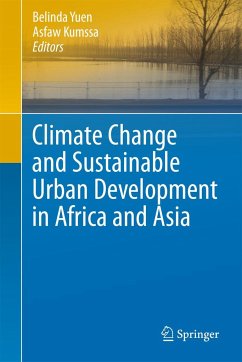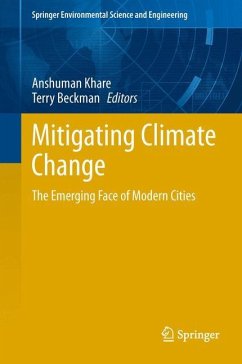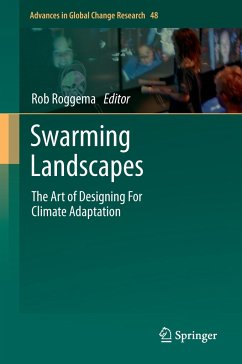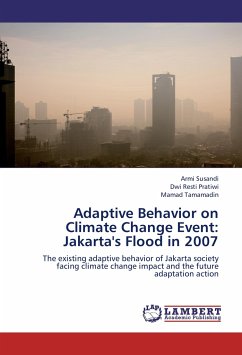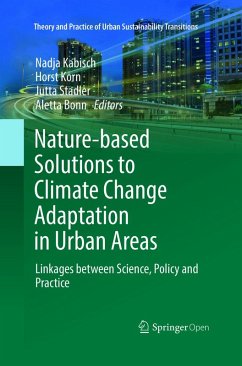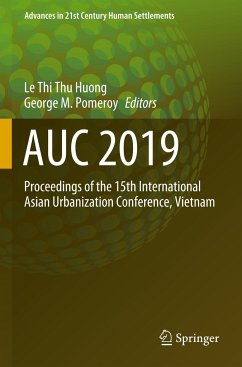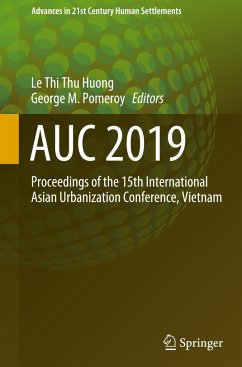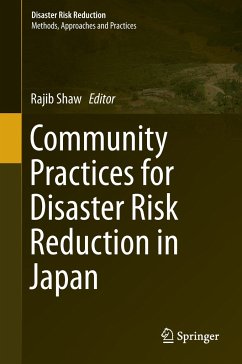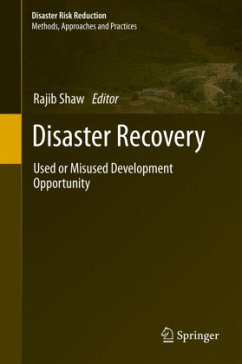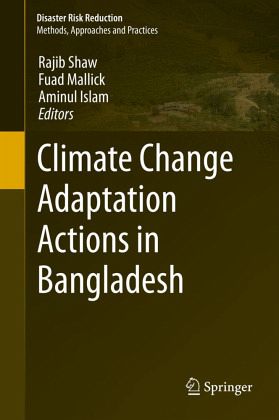
Climate Change Adaptation Actions in Bangladesh

PAYBACK Punkte
38 °P sammeln!
The book outlines the climate change adaptation (CCA) actions in Bangladesh drawing examples and lessons from different projects and programs in the country. The content is based on a selection of available documents, a consultative workshop with the academicians from different universities undertaking higher education on disaster risk reduction and climate change adaptation, and the editors' own knowledge and experience in the field.The book has four parts. Part I gives the details of climate change impacts, providing the scenarios, negotiations, and specific impacts on sea-level rise and the...
The book outlines the climate change adaptation (CCA) actions in Bangladesh drawing examples and lessons from different projects and programs in the country. The content is based on a selection of available documents, a consultative workshop with the academicians from different universities undertaking higher education on disaster risk reduction and climate change adaptation, and the editors' own knowledge and experience in the field.
The book has four parts. Part I gives the details of climate change impacts, providing the scenarios, negotiations, and specific impacts on sea-level rise and the health sectors. Part II focuses on climate change strategy and action plans. Part III covers socio-economic impacts in terms of economic and environmental costs. Part IV focuses on adaptive actions for agriculture, livelihoods, and integrated approaches in agriculture and fisheries. Part V deals with climate-change governance issues.
The primary target groups for this book are students and researchers in the fields of environment, disaster risk reduction, and climate change studies. The book will provide them with a good idea of the current trend of research in the field and will furnish basic knowledge on this important topic in Bangladesh. Another target group comprises practitioners and policy makers, who will be able to apply collective knowledge to policy and decision making.
The book has four parts. Part I gives the details of climate change impacts, providing the scenarios, negotiations, and specific impacts on sea-level rise and the health sectors. Part II focuses on climate change strategy and action plans. Part III covers socio-economic impacts in terms of economic and environmental costs. Part IV focuses on adaptive actions for agriculture, livelihoods, and integrated approaches in agriculture and fisheries. Part V deals with climate-change governance issues.
The primary target groups for this book are students and researchers in the fields of environment, disaster risk reduction, and climate change studies. The book will provide them with a good idea of the current trend of research in the field and will furnish basic knowledge on this important topic in Bangladesh. Another target group comprises practitioners and policy makers, who will be able to apply collective knowledge to policy and decision making.





